Returning to a tropical rainforest prompts a very specific form of deja vu: The deafening roar of insects. The cloying humidity. The tingle of the sweat bees feeding on your dewy arm. The ripe, heady scent of tropical vegetation. The ground slipping slightly beneath each footfall. Oh boy. This again.
But despite this deja vu, Indonesia offers it’s own special flavor of fieldwork — from the mouth-melting chili sauce piled on every meal to the midday prayers ringing out over loudspeakers in even the smallest town. A year after our field adventures in Papua New Guinea, Tim Boucher, Zuzana Burivalova and I returned to the tropics for another round of acoustic fieldwork, this time joined by colleagues from the Nature Conservancy’s Indonesia program.
Read on for an account of a day in the life of a field scientist working in the heart of Indonesian Borneo.
5:45 a.m. The gibbons are awake. And therefore so are we. Their howls can carry through the dense forest for more than a kilometer, so the thin wooden walls of our room in the Karya Lestari logging camp pose no barrier.
After extracting myself from my mosquito net, I walk to the back porch and say good morning to the assortment of geckos, cockroaches, and other unidentified flying insects that share our toilet and washroom. Before getting dressed I have to relocate a fuzzy, palm-sized moth that’s taken up residence on my still-damp laundry.
6:34 a.m. The camp stirs, and the little cross-eyed stray cat that shares our building starts meowing loudly. Tim, Zuzana, and I grab our mugs, slip on our shoes, and stumble across the mud yard to the kitchen. Breakfast is the same each day: steaming sweet tea or coffee, white rice, bananas, leftover salted fish, and a lukewarm omelet with chopped onions. Our Indonesian colleagues and logging camp staff douse everything thoroughly with chili sauce. I tried it on the first day — the smallest possible dab on my rice nearly melted a hole through my tongue.
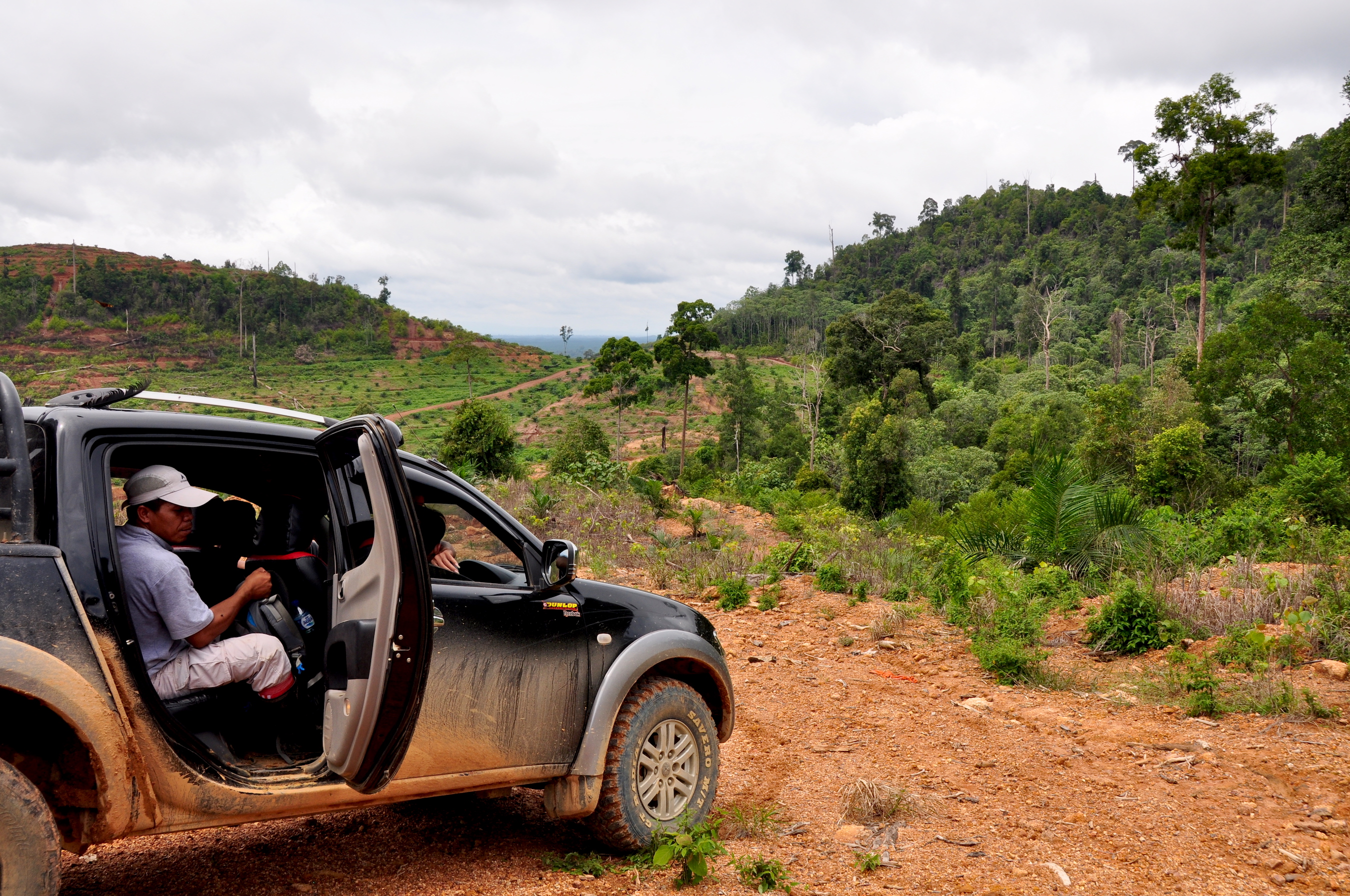
7:20 a.m. Our drivers start the trucks. We still have a good 30 minutes before we leave, but when in Indonesia you start the trucks early. Because that’s just how it’s done.
8:05 a.m. We roar out of camp, watching hornbills cruise overhead as we pick up speed. The red clay road winds along a river, switchbacks up the steep mountainsides, and runs along the ridges before plunging back down at random into the misty valley.
The stunning scenery is offset by the saccharine One Direction song pounding through the Toyota’s speakers. I wanna stay up all night, up all night… Ironically I was up all night, but that had less to do with enacting some teenage boy-band’s version of debauchery and more to do with Tim’s snoring and my sleeping pad squeaking against the plastic floor as I tossed and turned. And jump around until we see the sun… up, up, up all night! The song ends, and with a sinking feeling we realize that the entire playlist is One Direction. It’s going to be a long day.
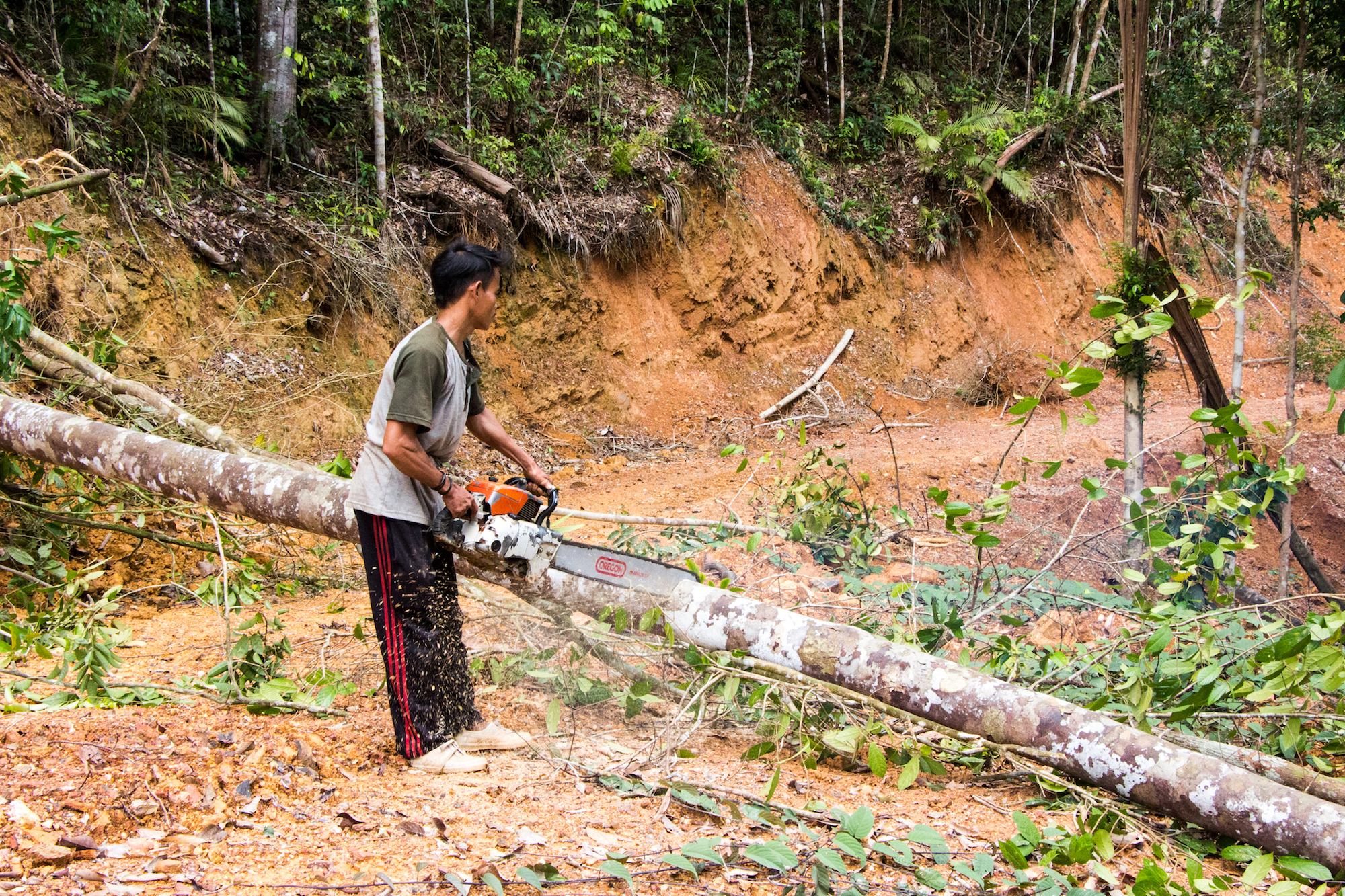
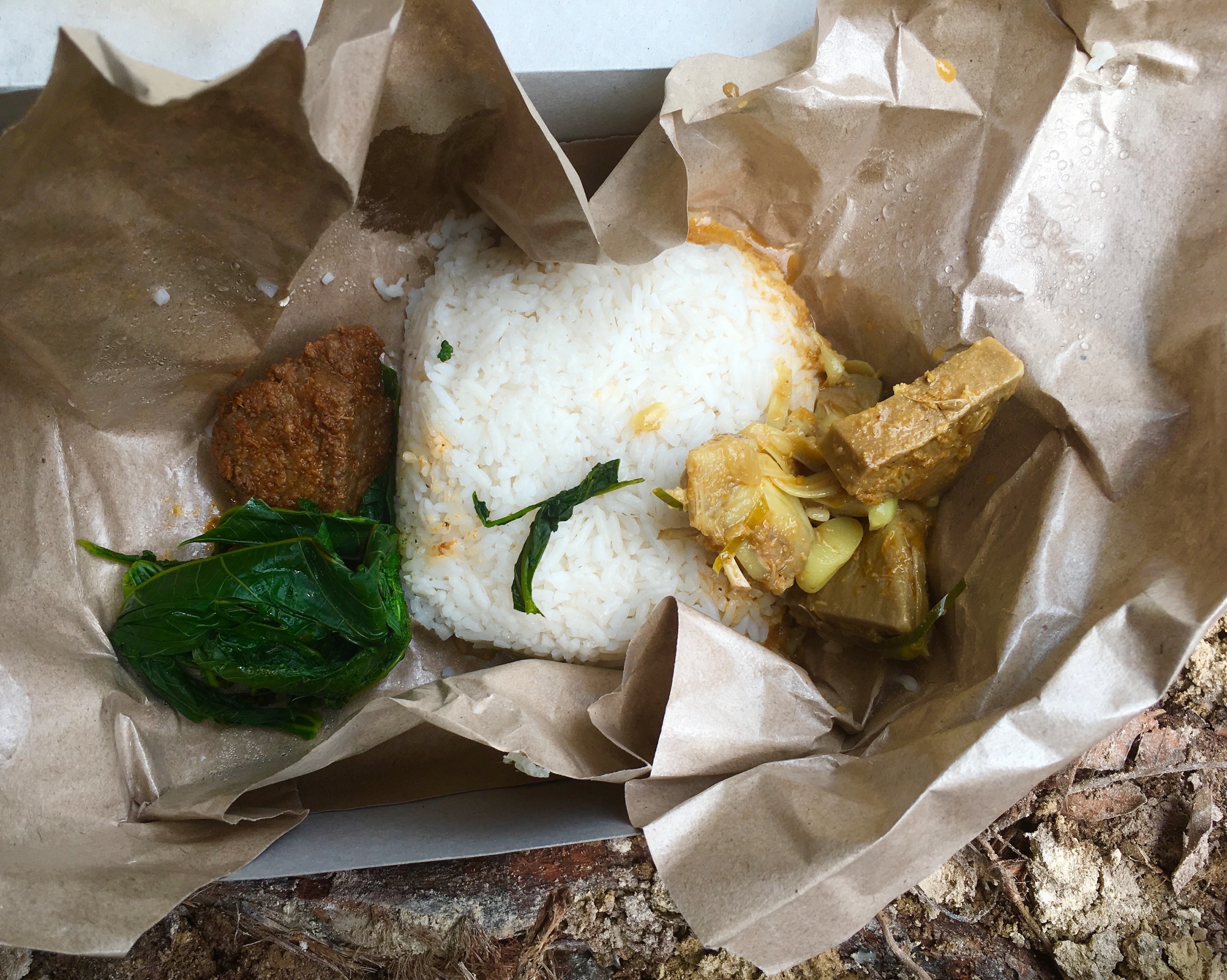
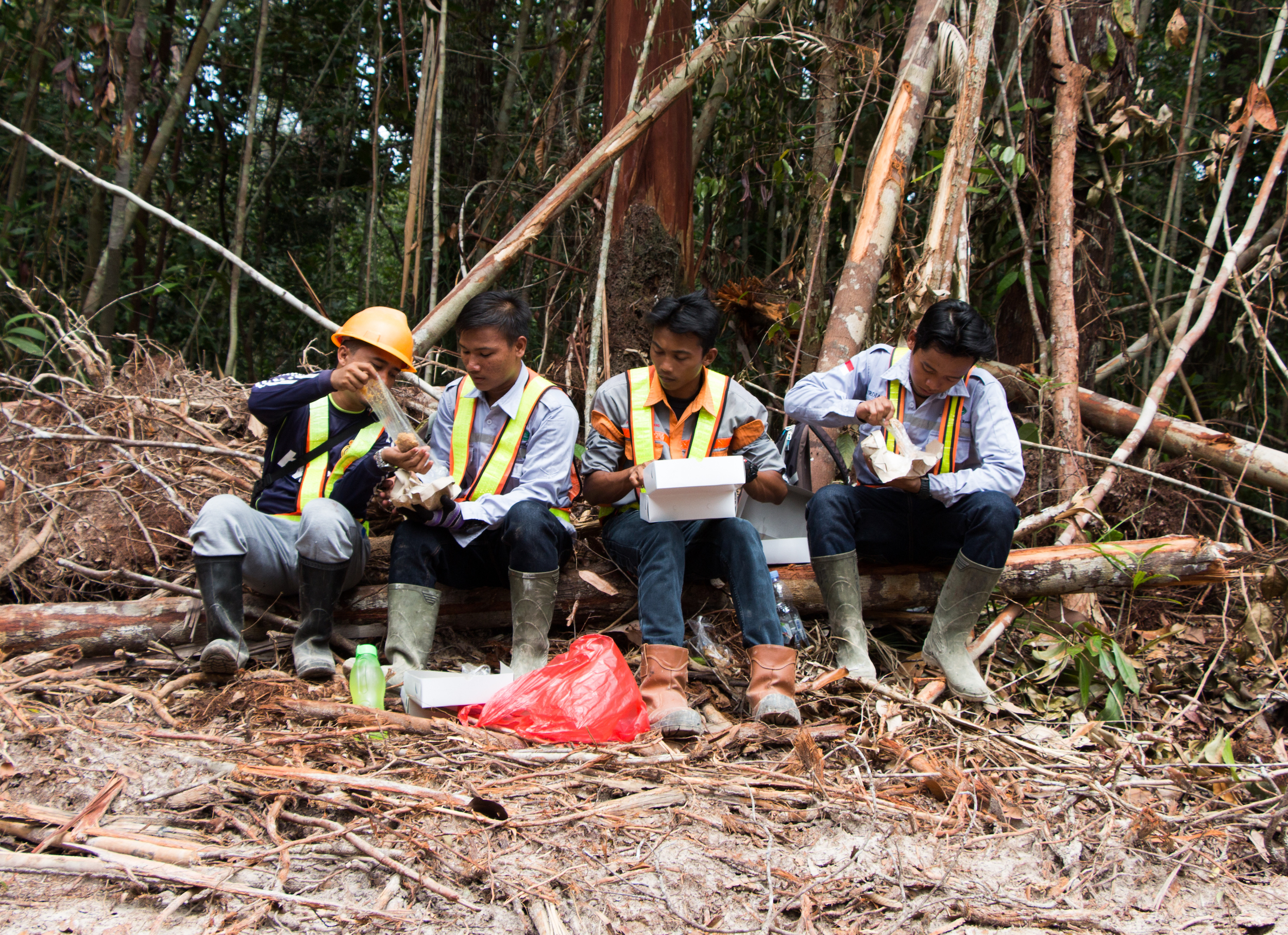
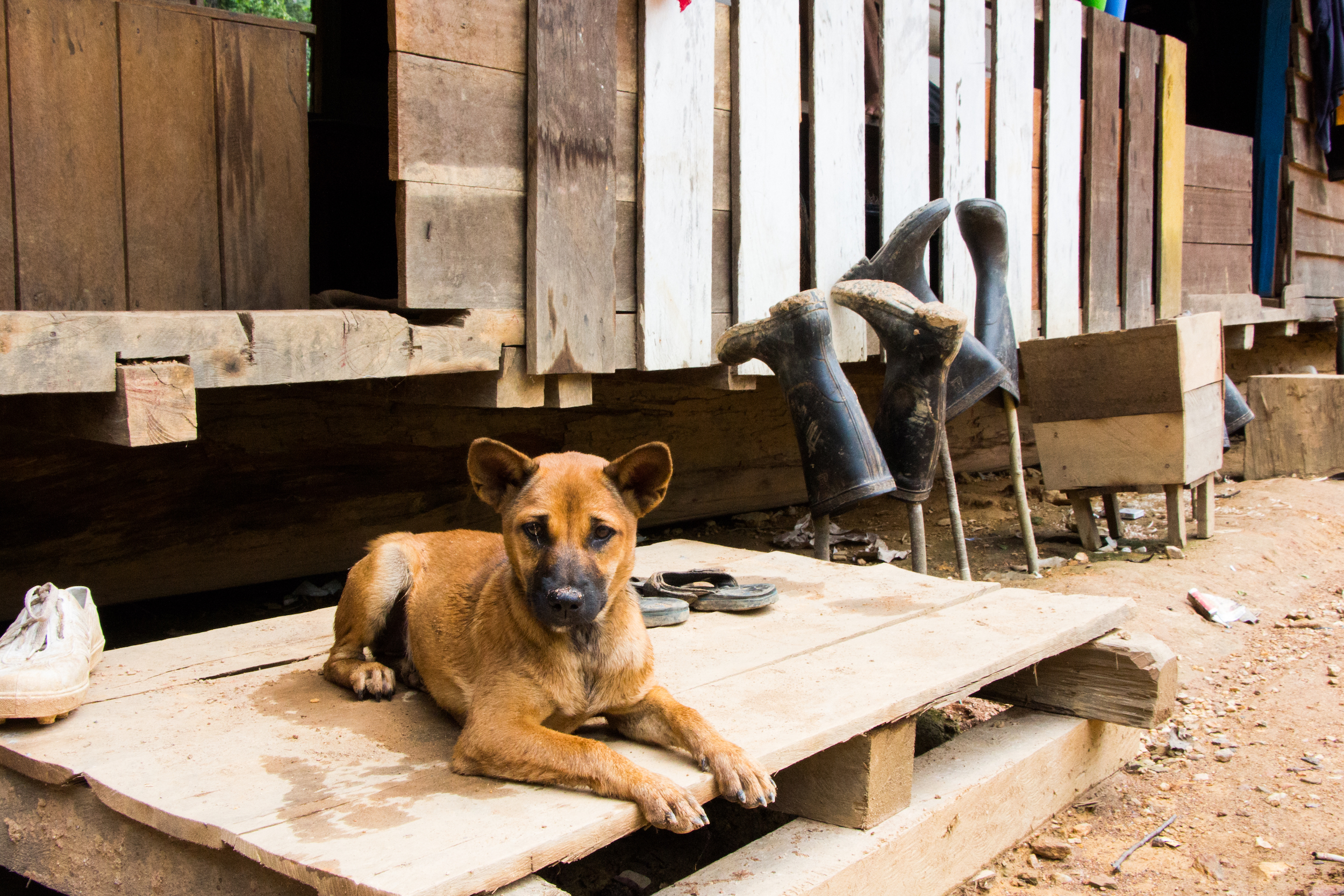
8:23 a.m. The truck ahead screeches to a halt, and our Indonesian colleagues tumble out of the back and dash off into the forest. We sit, somewhat bemused but perfectly content to scan the forest edge for birds.
A few minutes later they return, carrying nearly a dozen spikey, putrid-smelling forest durian. For those unfamiliar with the delights of durian, these football-sized fruits smell like a used diaper dipped in turpentine, left to rot in the sun for a few months, and then set on fire. The revolting stench is so pervasive that the fruit is banned in businesses, hotels, and public transit throughout the country. And we are about share an enclosed, already-cramped space with two armfuls of them. Please no. Thankfully, the men dumped everything into the truck bed and they climbed back in.
8:53 a.m. There’s a tree in the way. And not just any tree… a massive dipterocarp nearly as wide as I am tall. Today we’re deploying recorders in a part of the concession last logged in 2013, which means the roads haven’t been maintained in more than three years. We’ve already had to stop several times to negotiate slowly around meter-deep ruts and clear smaller treefalls with chainsaws, but there was no way around this monster. We’d have to walk the next few kilometers on foot.
10:03 a.m. After cutting a few hundred meters into the forest, we’re just about ready to deploy the first recorder. I make use of the only word I know in Bahasa Indonesia — “Suda?” — which roughly translates to “Enough?” Have we hiked far enough? Have we put out enough recorders?
“Suda!” Zuzana declares, and so we move onto our daily game of tree-picking. Tim points to a random tree and asks Zuzana, Purnomo, and Jasari for their approval. “This tree?” No. “This tree?” No. “Suda?” No. The rest of us take up the chorus, giggling as we struggle up the slope in search of the perfect tree. Finally our ringmasters are satisfied, and we break out the recorder and strap it into place.
10:51 a.m. The hiking continues, but we’re momentarily distracted by a scattering of wild lychee fruit on the ground. Ever the primates, we forage around to find a handful of unopened, strawberry-red sticky fruits. We dig in, ignoring the fact that any unopened fruit were likely mouthed by a hornbill and have been sitting on the forest floor for untold days.
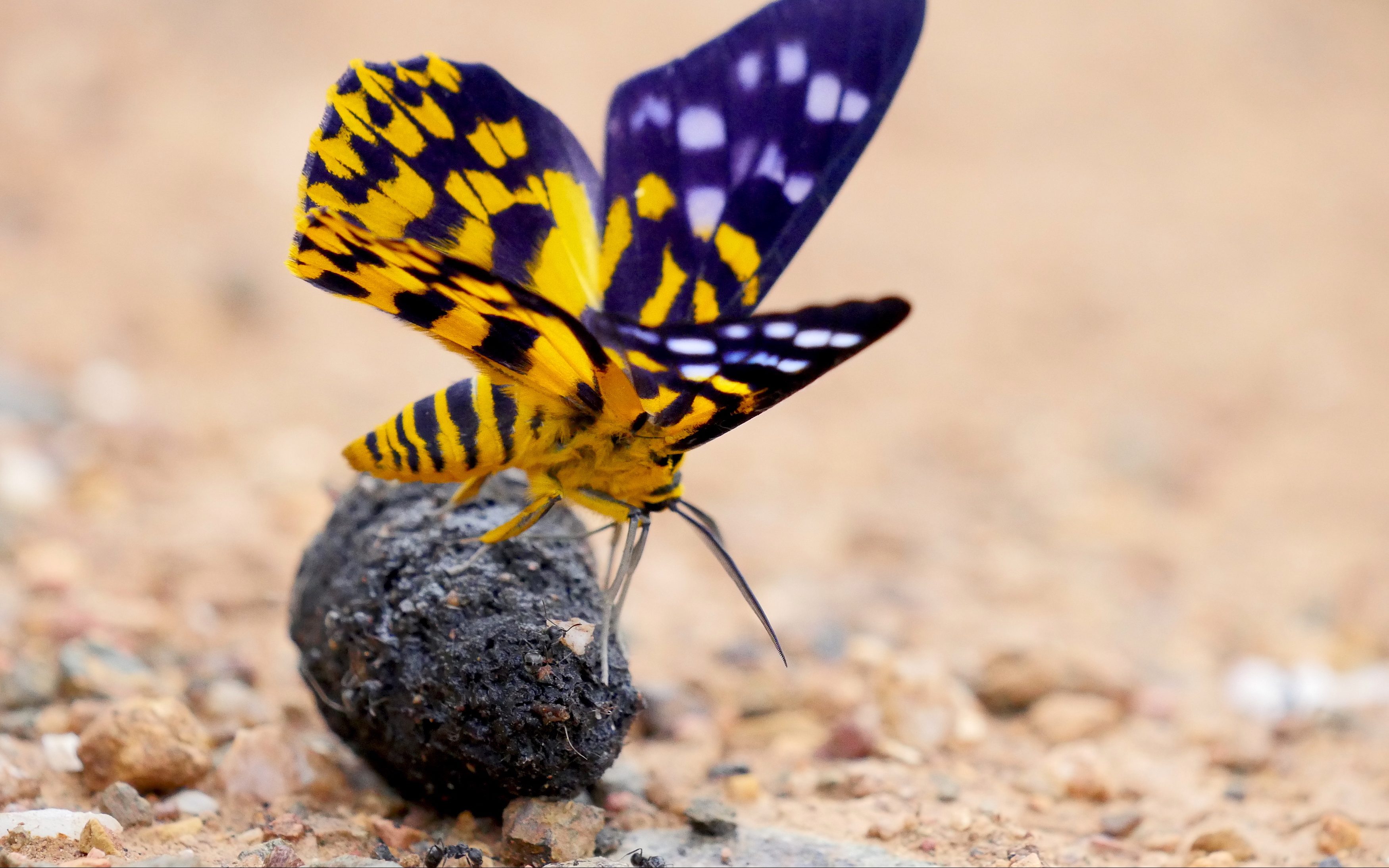
12:05 p.m. Four words to describe lunch: Fish and sweat bees. The fish is salty and the insects relentless… crawling over our arms, up our legs, and into our noses to lap up the copious amounts of sweat dripping from every pore. Thankfully they don’t sting, but the tickling sensation is maddening.
2:11 p.m. Two recorders down, two to go. We’re bushwacking our way along a skid trail overgrown with savagely thorny vegetation, slipping on the mud as we go. Or rather Tim and I are slipping, while Zuzana, Purnomo, Jasari, and the rest of the Indonesian crew is sure-footed as ever.
Without warning, a brown, four-footed, horned blur explodes from the brush to our left, rocketing across the path and nearly crashing into Tim. A few loud expletives later we realize that we’ve just seen a small, threatened forest deer found throughout Kalimantan. (Differentiating between the two species on Borneo, Muntjac muntjac and Muntiacus atherodes, is extremely difficult). Lesson learned: rare mammal sightings are infinitely better when there’s a threat of collision.
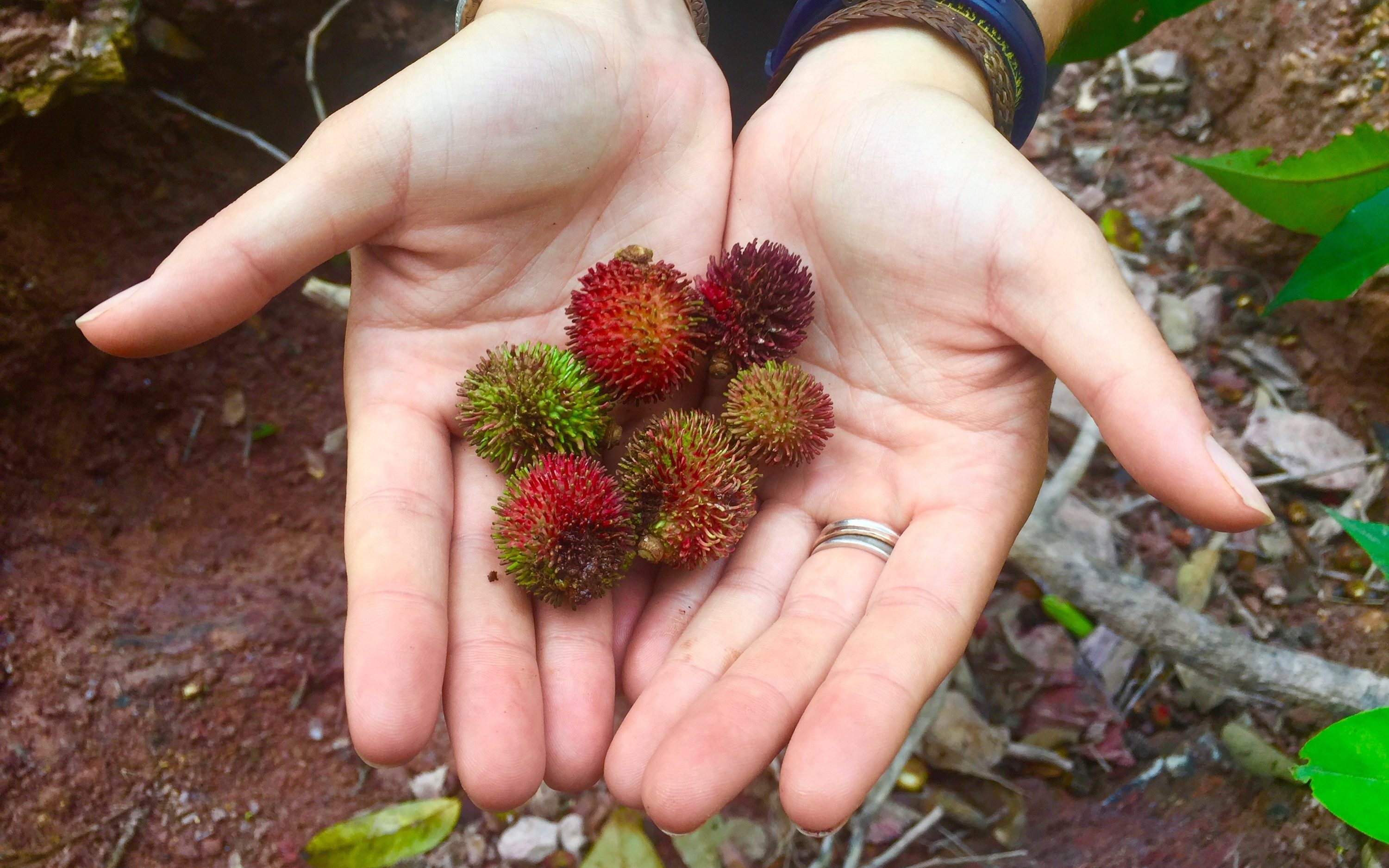
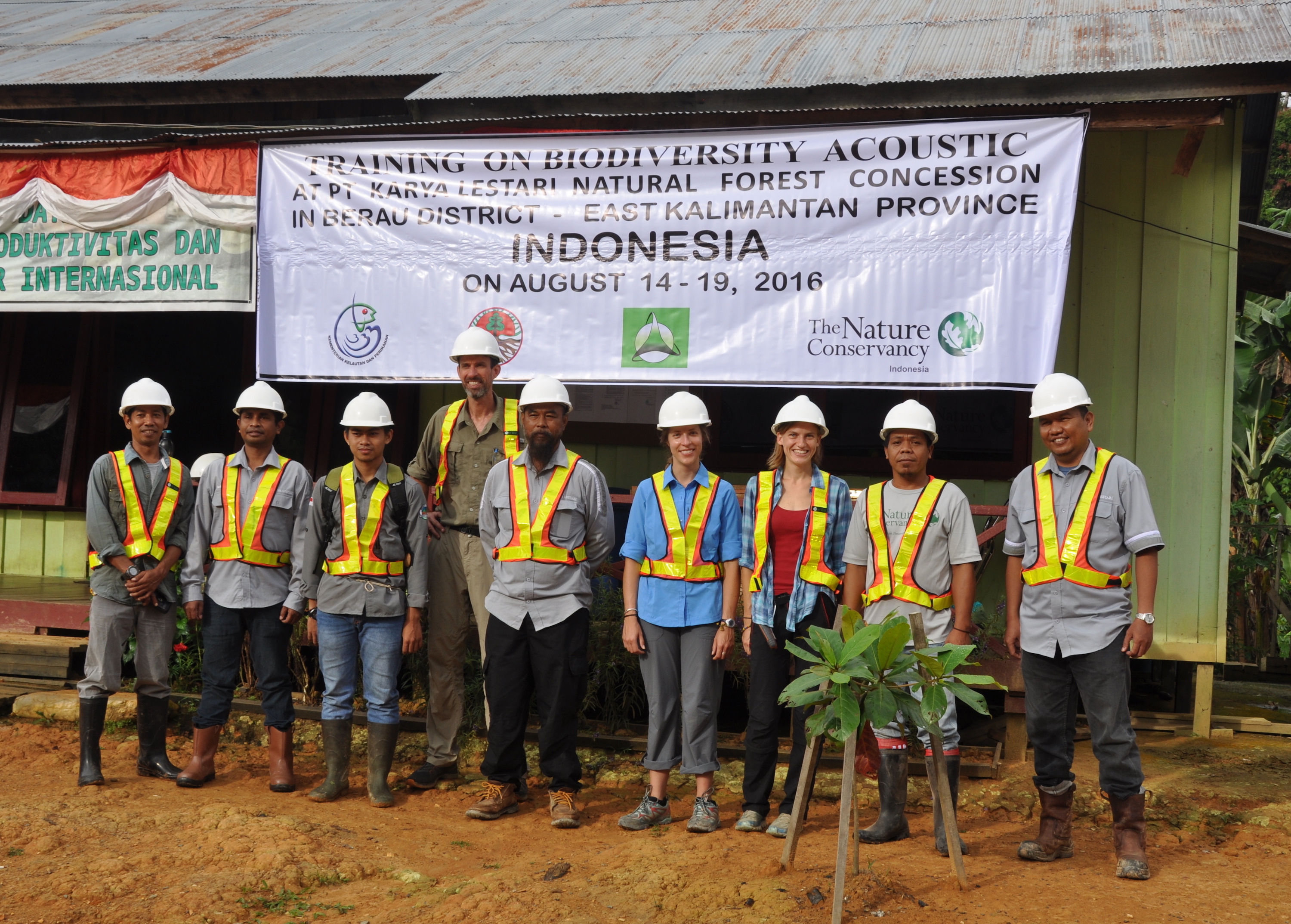
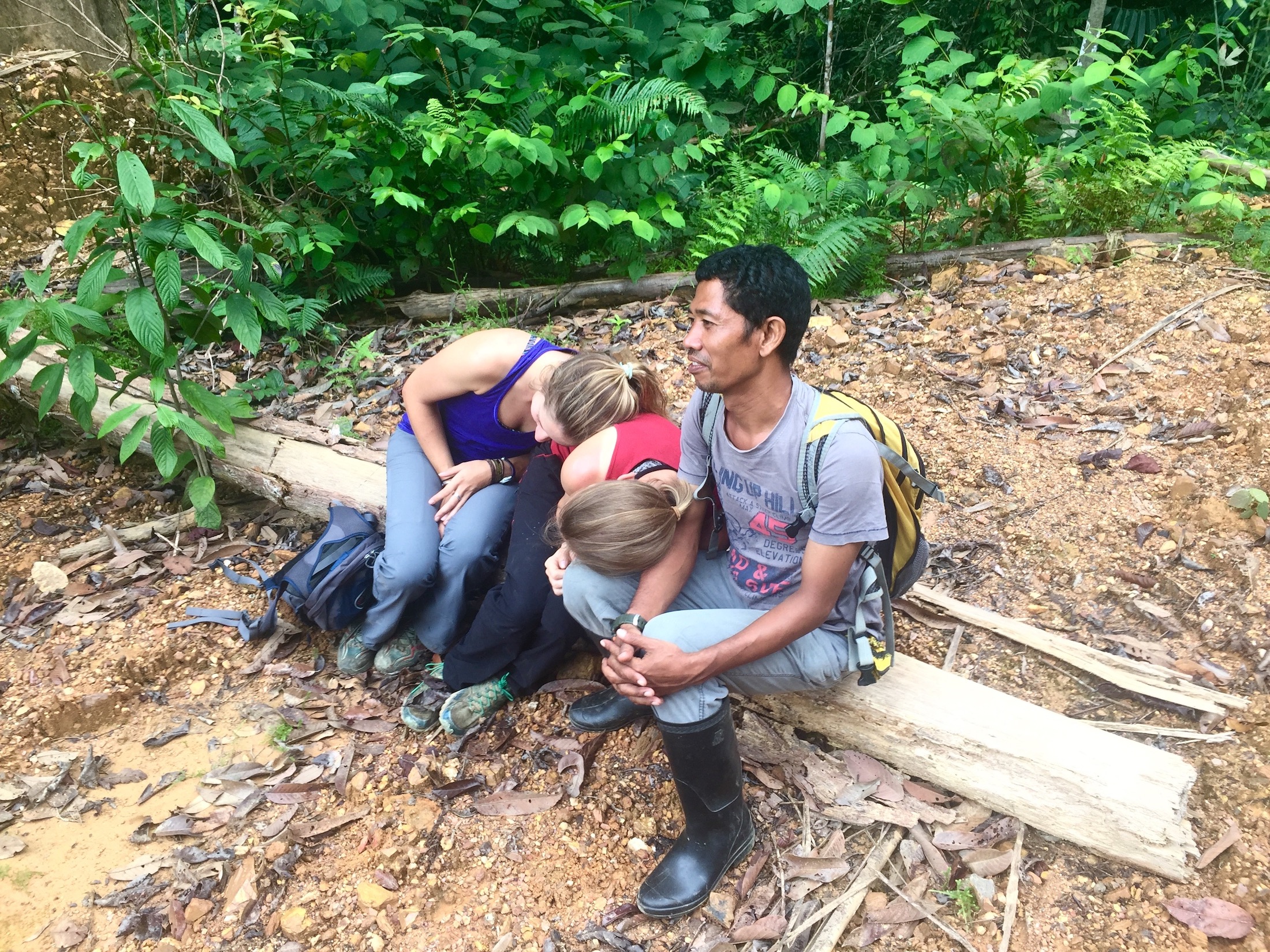
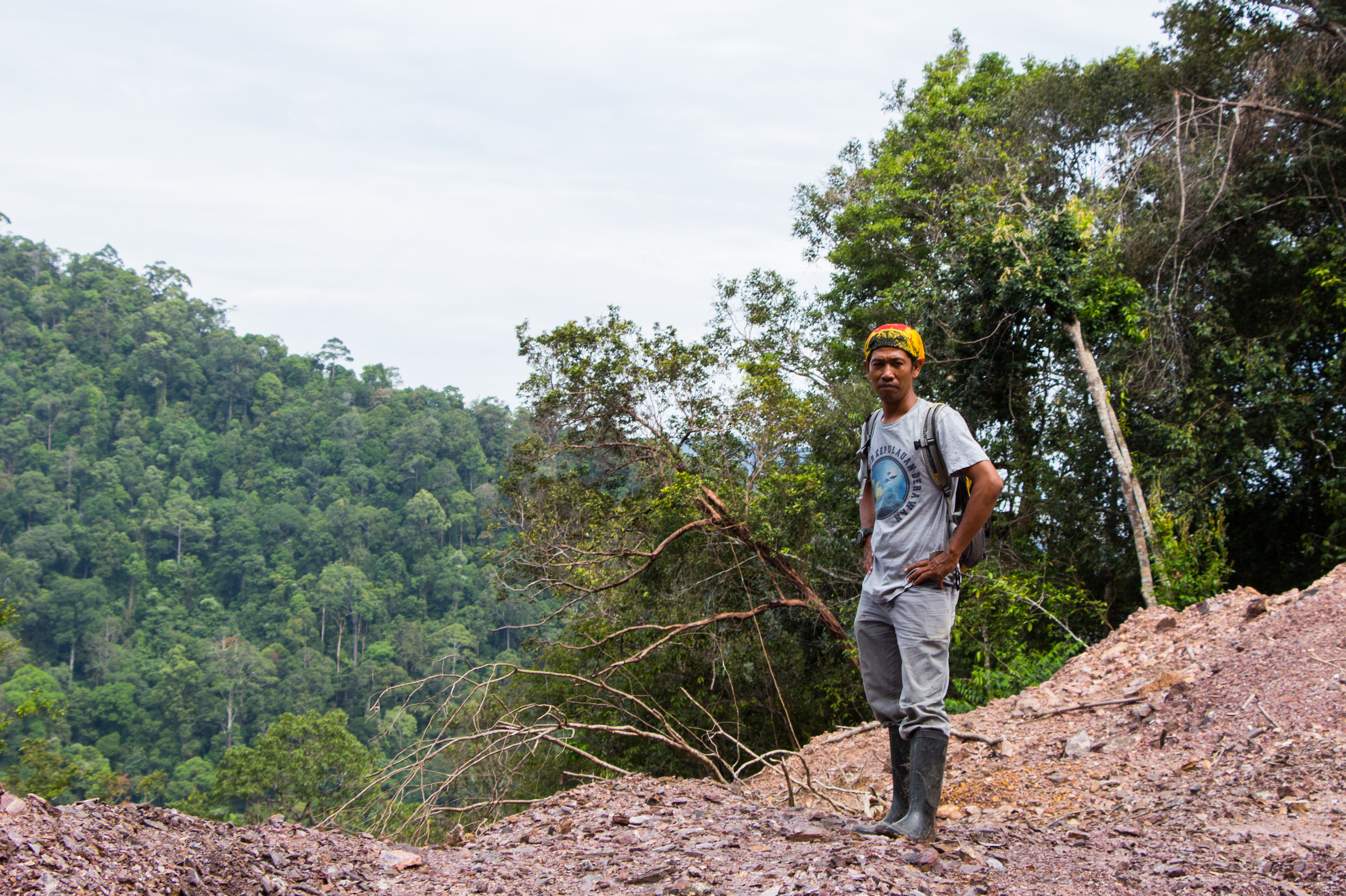
4:45 p.m. Back at camp we’re desperately in need of a cold bath. Each of the two concrete-floored washrooms has deep porcelain sink, a tap connected to a rainwater tank, a small plastic scoop, a baseball sized drainage hole cut into the wall, and a few nail hooks — a veritable spa after days of muddy, sweater tramping through the forest. The chubby geckos are still there, tucked between the metal roofing.
6:20 p.m. Fried chicken and watermelon. It’s the last meal I ever expected to eat in the middle of the Borneo rainforest, but it’s a welcomed break to the usual rice, salted fish, eggs, and hot sauce. So welcome, in fact, that the four of us eat two whole watermelons before the Dayak cooks cut off our supply with a smile and an admonishing finger-wag.
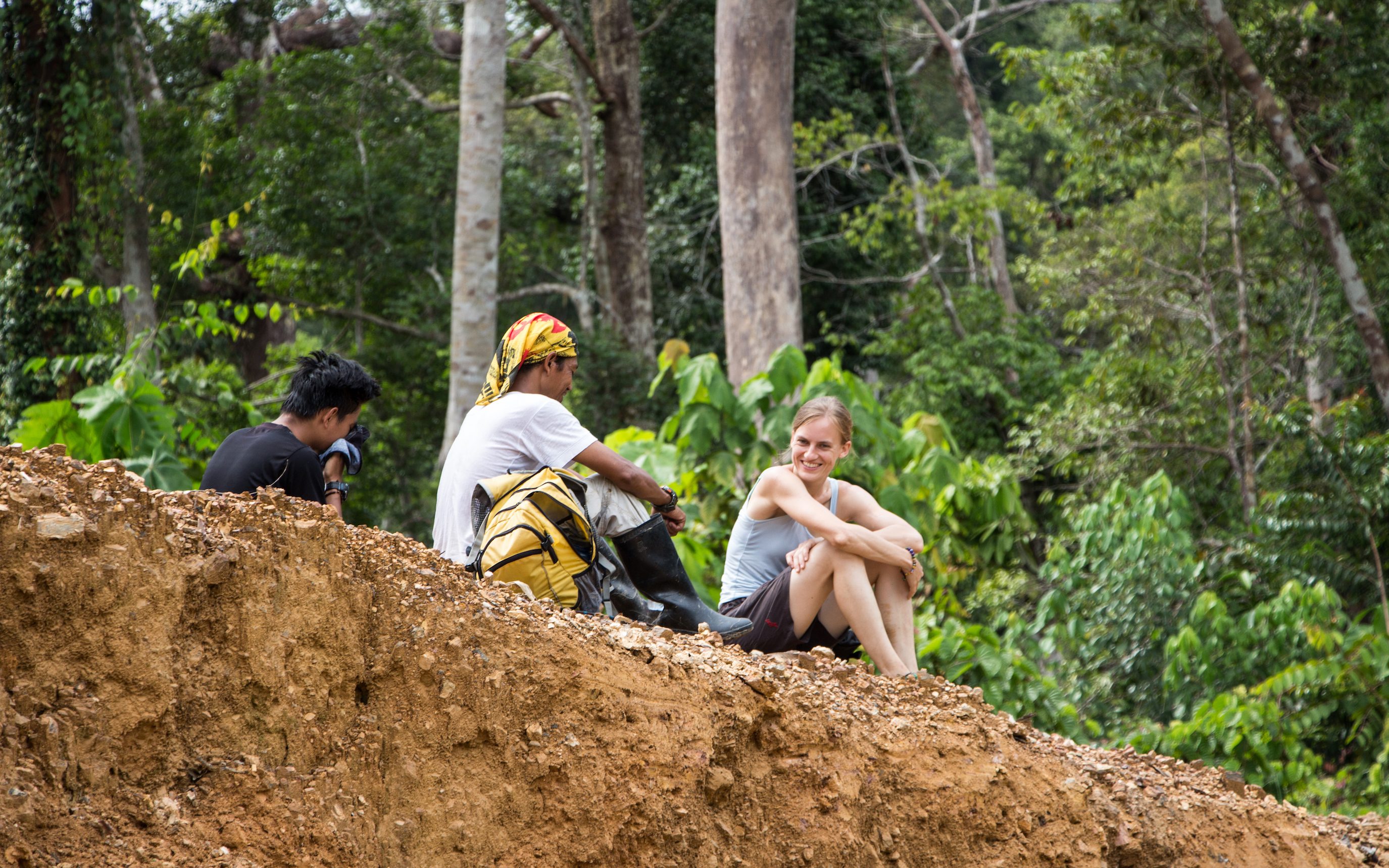
8:34 p.m. It’s mammal time. We grab our headlamps and insect repellant and head off down the road, scanning the vegetation in hushed whispers. Just a few meters out of camp Purnomo wanders off into the bush, in search of a durian tree where he saw a porcupine the other day. Something glimmers green in the light of my headlamp, and a closer look reveals a common palm civet chomping happily on some still-growing bananas, its noshing audible over the cicada and frog chorus.
A massive fruit bat swoops silently overhead. Seconds later we realize that the bat’s unfortunate mid-flight defecation has landed directly on Purnomo’s one clean shirt. We turn around for camp, enjoying the alliterative qualities of the phrase “shat on by a bat.”
9:11 p.m. The party never stops in the forest. Our drivers have hauled in a massive speaker/subwoofer combo the size of a small child. Thankfully they too were sick of One Direction, and we are now onto an assortment of dated electronic music played at floor-vibrating volume. We dance (badly) as we brush our teeth and rotate still-damp clothes on the line.
10:05 p.m. The music finally stops, and we drift off to the sounds of rain and kissing geckos. Another day of data collection and fun in the forest.
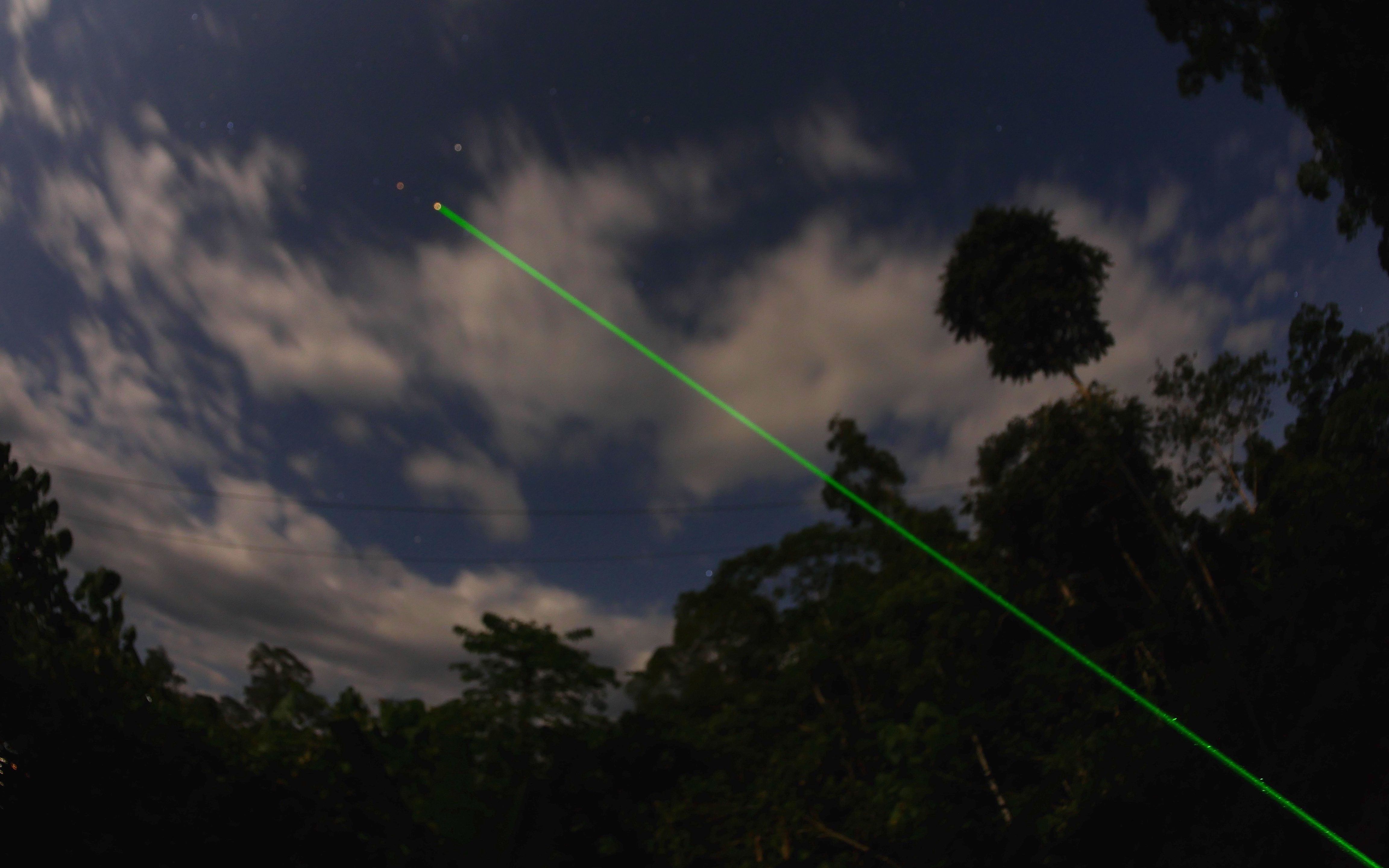
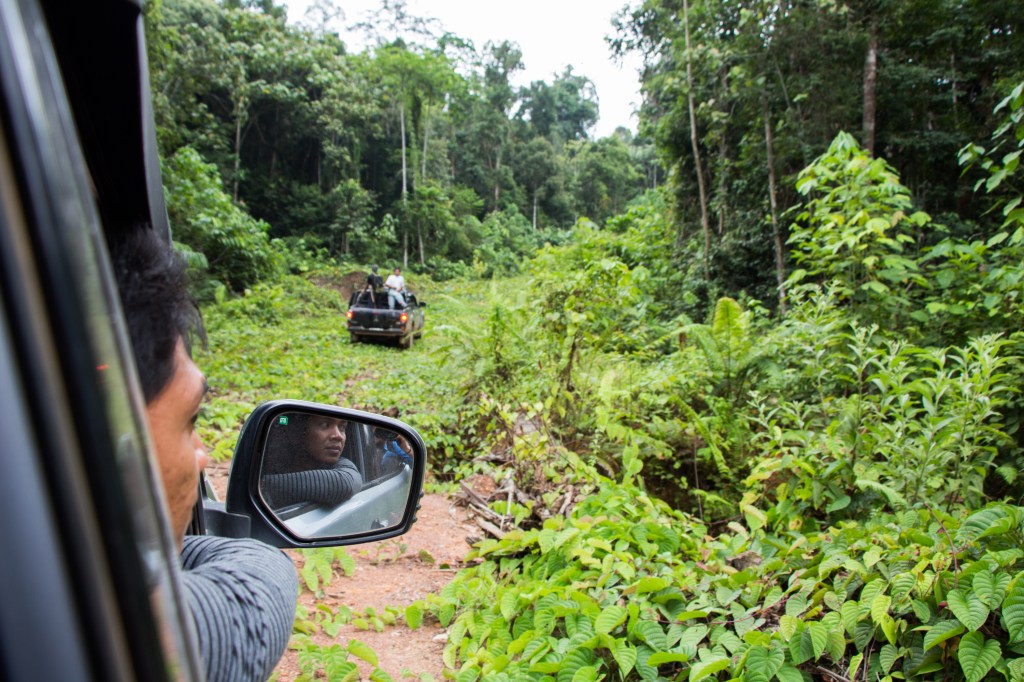



A delightful read and while not getting to visit Kalimantan or Borneo, I did spend 3 years teaching at the international school of Kuala Lumpur. This Asia is permanently stamped in my mind, sights, sounds, tastes, smells (especially smells – Durian UGH – you either love it or hate it).